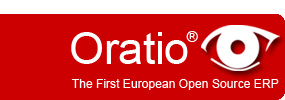Open Source: what is it?
General principle
Open Source is a guarantee of evolution and efficiency thanks to the sharing of the software development. This is possible thanks to the liberty of access to the source code.
Open Source = join venture between a multitude of small entities for the benefit of all
Why are these programs free?
Open Source programs are generally free of charge because they are the result of a group job; it would be difficult to establish how to distribute the profits deriving from the sale. Since the code source of these programs is accessible to all, it would not be sensible to sell the product! The fact that these software are free is the logical consequence of this kind of model, not the being reason.
In order to know more:
- Open Source definition according to the company IdealX
- Consult the GPL licence, which the greater part of Open Source project refers to. It concurs to guarantee the sharing of the code and, consequently, the possibility of collaboration.
- Consult the Links page in the Open Source section.
Developers' advantages
Independence
The user does not depend from a specific software publisher. The competences on which a program relies on are distributed amongst all the developers.
Quality guarantee
The community represents a flexibility and development potential that no publisher of software can guarantee. In more, the access to the source code allows to modify and to improve the programs remarkably.
© Oratio-Project 2004 - all rights reserved







